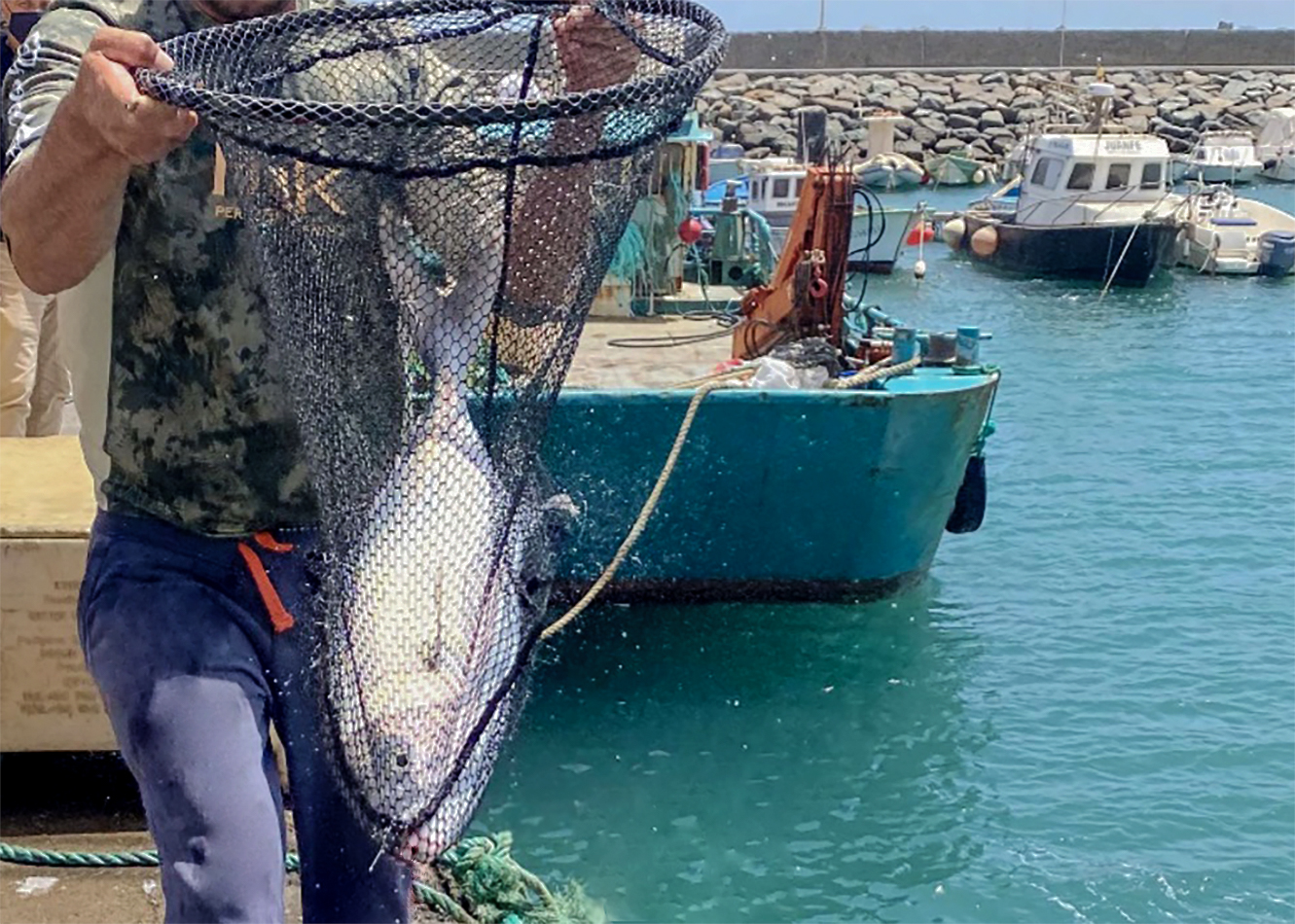Fishermen from Gran Canaria collaborate with the University Institute ECOAQUA of the ULPGC to increase genetic diversity of amberjack brood stock within the framework of the PLANASER 2.0 project, through which Spain will be positioned as a referent in the cultivation of this species.
The University Institute of Sustainable Aquaculture and Marine Ecosystems (ECOAQUA) of the University of Las Palmas de Gran Canaria (ULPGC) relies on the artisanal fishermen of Gran Canaria to increase the genetic diversity of their stock of brood stock of amberjack (Seriola dumerili), within the framework of the National Plan for the Consolidation of Seriola Culture (PLANASER 2.0). According to the coordinator, Javier Roo, “maintaining a good genetic diversity of brood stock is vital for the initiation of culture of any new species for aquaculture”, which is why the collaboration with the local fishermen has been crucial in order to maintain the research work.
This cooperation between the university and fishermen dates to no less than the 90s. For this activity in which large specimens must be captured and kept alive until they are brought to the ULPGC facilities “there is nothing better than having the participation of fishing professionals with whom we maintain a close relationship since this and other aquaculture diversification programs were started at the ULPGC” .

In fact, the Aquaculture Research Group (GIA) that coordinates the project has been developing breeding programs for this species since 2005, with a stable production of aquaculture juveniles of seriola. “Actuality we already have third generation breeders, although we are interested in introduced new genetics to our stock with a plan to initiate improvement and genetic selection programs in the near future, as is done with other species of cultivated fish or livestock”, explained Javier Roo.
Specifically, the GIA amberjacks, comes from the southwest coast of Gran Canaria. In addition to the Seriola dumerili, currently ECOAQUA is also working with other fast growing specie such as the Seriola rivoliana, Argyrosomus regius and Pseudocaranx dentex. Also other low trophic species such as Liza aurata, Chelon labrosus, or the Canarian clam Haliotis tuberculata that are under study at GIA were capture initially with the collaboration of local fishermen.
Canary Island aquaculture to promote blue employment
The Canary Islands is one of the Spanish areas with the deepest roots in the aquaculture sector. According to data from the Government of the Canary Islands, the archipelago is the second largest producer of sea bream and sea bass from aquaculture in Spain, supplying more than 7,000 tons of fish per year. Aquaculture, in addition to being a sustainable source of food, has an important impact on the economy of the archipelago. According to the Spanish Aquaculture Business Association, around 800 people work in this discipline, providing the islands with more than 41 million euros annually in first-sale value, far exceeding the value of the rest of the local fish products (around 32 million).

However, only sea bream and sea bass are currently produced commercially in the Canary Islands. "By consolidating the production of seriola, it would increase the aquaculture production capacity in the areas defined in the islands by the Aquaculture Management Plan (PROAC in spanish), which currently indicates a maximum annual capacity of 37,000 tons, increasing the number of companies in the sector and expanding the current ones, which would also mean creating more blue employment," affirmed Roo.
The PLANASER 2.0 program is an initiative coordinated from the Canary Islands (ULPGC/ACIISI) with the participation of the University of Cadiz (UCA), the Polytechnic University of Valencia (UPV) and the Andalusian Aquaculture Technological Center (CTAQUA). Likewise, the importance of public-private cooperation and the knowledge transfer is reflected with the participation of commercial partners such as AVRAMAR Group, ACUIPALMA S.L, Piscicola de Trebujena, Bedson España S.A.; Skretting España S.A. and APROMAR.


